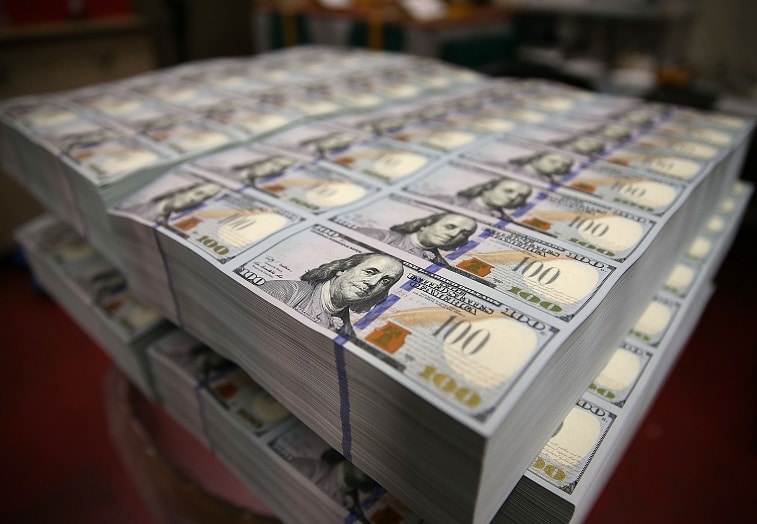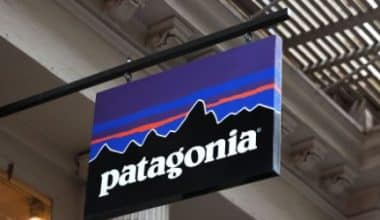Nowadays, it’s simple to assume that all businesses manage their financial affairs digitally. But it simply isn’t the case. Many establishments only accept cash for payment and do not accept credit or debit cards. Let’s discuss what cash-only businesses are with examples and answer the question “Do cash-only businesses pay taxes.”
Check out: LEDGER IN ACCOUNTING: Definition and How It Works
Cash Only Businesses
The sole form of payment accepted by cash-only establishments is cash. Cash is king in these establishments, so that’s all they’ll take from you.
In an establishment that only accepts cash as payment, you won’t be able to use any other payment method, including a debit or credit card, a money order, or a mobile wallet. The good news is that this approach is quite legitimate and accepted in the corporate world.
The Advantages Of Cash-Only Businesses
Cash-only operations have a lot of advantages, particularly for small enterprises and newly established young entrepreneurs. Here are a few of the most important advantages:
- No waiting involved– Businesses get paid immediately for their goods and services. They do not have to wait for banks and credit card companies to finish the transactions.
- No fees are necessary– But keep in mind that accepting credit cards comes with a cost for businesses. These costs don’t apply to cash-only enterprises, which can be a big deal for tiny businesses that already have slim profit margins.
- No chargebacks – By just taking cash, you can avoid having to deal with returned checks or credit card fraud. With cash, everything is completed upfront and there are no unpleasant surprises, which is how small firms (such as those in the retail industry) prefer to function.
The Disadvantages of Cash-Only Businesses
Although there are advantages to exclusively accepting cash, owners of these kinds of businesses should be aware of some of these perks.
- Customers Might Find It Inconvenient – Possibly the largest drawback of a cash-only business is that certain customers might find it inconvenient. As a result, individuals can decide not to spend money at a cash-only establishment.
- It Might Be A Security Risk – Companies that exclusively accept cash should be mindful of the security dangers involved. The following security issues are associated with operating a cash-only business
- Audits Are Much More Likely – Any business owner that only accepts cash should be aware that they may have to deal with an IRS audit more frequently.
How to Manage a Cash Only Businesses
You must take additional security measures if your company only accepts cash. Customers should be made aware up front that you only accept cash, and staff members should handle cash carefully. You must also keep your accounting records in excellent condition. Additionally, you must submit the correct forms to the IRS. Take a closer look at the following advice if you choose to operate an all-cash firm.
#1. Inform Your Clients
Display signage around your place of business informing clients that debit and credit cards are not accepted. If customers spend an hour in your store, try to pay with a credit card, and discover they require cash, they can become irate.
#2. Educate Your Staff
Do your staff members understand how to handle money properly? Are the people you employ dependable and honest? Make it mandatory for employees to complete training before they begin working. Teach staff members how to spot fraudulent currency.
#3. Maintain Complete Records
Only taking cash could result in incomplete records. You don’t receive signed invoices or electronic bills as a result of using credit cards to make purchases. Instead, you must document the following: Date, Amount, Item, or Service Sold For your records, make sure to keep a copy of every customer’s receipt.
#4. Adhere to IRS Rules
If a customer pays more than $10,000 in cash in a single transaction, two transactions, or multiple related transactions, the IRS requires you to complete Form 8300. Fill out Form 8300 with information on the customer, the transaction, and your company.
Examples of Cash-Only Businesses
Some businesses often restrict customers’ payments to cash. Examples of cash-only businesses include:
- Restaurants
- Coffee shops
- Street hawkers
- Lawn maintenance
- Babysitters
- Vending machines
- Laundromats
Do Cash-Only Businesses Pay Taxes?
Every business transaction must be documented, and all revenue, including cash revenue, must be reported to the IRS and subject to taxes.
If your company accepts cash as payment for goods or services, you must have a system in place for both recording cash payments and filing tax returns. However, there are cash-only businesses that oppose a cashless society by providing excellent earnings and tax avoidance.
Best Cash Only Businesses
Businesses with cash-only policies appear to be a thing of the past, despite the fact that many individuals still prefer to be paid in cash. Consider this: When was the last time you had to utilize an ATM to get cash because a place of business did not take debit or credit cards?
You no longer need to carry cash with you at all times due to the popularity of credit and debit cards as well as the digital advancement of peer-to-peer payment services like Square Cash and even PayPal. However, a small number of companies still follow cash-only procedures. Here are the best businesses that use cash only.
#1. Beauty Parlors
According to Nails Magazine, customers spent $8.51 billion on nail services in 2015. Approximately 10% of all nail technicians in the United States exclusively accept cash, and 42% of customers pay for services with cash, making it the most common method of payment, according to the magazine’s 2014-2015 study on the nail industry.
#2. Smaller Eateries
It would be difficult to locate a franchise restaurant that accepts solely cash. However, it’s usually for smaller restaurants to solely accept cash, particularly mom-and-pop eateries, little ethnic restaurants, and venerable enterprises.
#3. Auxiliary Devices
In 2014, just 11% of vending machines had cashless readers installed. Still, only 7% of machines had cashless readers in 2012, so there has been a slight growth from that year.
#4. Meters in Parking
According to the 2013 Emerging Trends in Parking Survey, which was carried out by the International Parking Institute, the need for cashless payment is the second-leading parking trend. The pay-by-phone parking option in Washington, D.C., which attracts 550,000 clients and accounts for 40% of the city’s parking revenue, is recognized as the most successful program of its kind in the world.
#5. Food Vans
Food truck meals are becoming increasingly popular. However, a shocking 72% of business owners refuse to accept credit cards, causing them to turn away consumers who only have plastic on them, according to an updated poll by Mobile Cuisine.
#6. Laundries
The Coin Laundry Association estimates that there are currently roughly 29,500 coin laundries in the United States with annual revenue of $5 billion. Over time, coin laundries have seen an increase in patronage, and no major chains currently control the majority of the industry. This sector is unlikely to slow down very soon because people will still require clean clothes.
#7. Vendors at Arts and Crafts Shows
Every year, thousands of art and craft fairs are conducted around the nation. In the past, customers were aware that they would need to bring cash to make a purchase, but the advent of mobile payments may change that. Large craft exhibitions may require vendors selling more expensive items to start accepting credit cards or risk losing business.
#8. Nanny Services
It used to be unheard of for parents to pay the babysitter for their kids with a credit card. But this is now highly likely because of websites like Sittercity and Care.com. Although many parents Although parents would find it more convenient to pay a babysitter with a credit card, it’s unlikely that this will be the determining factor when selecting someone to watch their children. Parents will probably be more than eager to pay with cash if they already know and trust the traditional babysitter.
#9. Tree Lots for Christmas
According to the National Christmas Tree Association, more than 26 million “genuine” Christmas trees were sold in 2014 for a total of $1.04 billion. And a sizable majority of customers who bought Christmas trees did so through unconventional or transient enterprises; for instance, 26% received their tree from a farm, 19% from a retail lot, and 9% from a non-profit organization.
Why Would a Business Be Cash-Only?
It allows you to maintain low prices since you are not required to include credit card processing costs. Additionally, you guarantee that the money is available right away, as opposed to credit card transactions, which may take two working days or longer to appear in your bank account.
How Do I Verify Income If I Get Paid Cash?
If paid in cash, you can verify this by:
Make bank deposits and associate the cash sum with invoices you created that have been paid.
A business credit card capable of being “refilled” with cash deposits is also available. Your income can be demonstrated by using the statements for credit cards to indicate cash deposits.
Bottom Line
Having a cash-only business has its advantages and disadvantages. It can be very alluring to offer immediate payments and no credit card processing costs, but doing so compromises both the convenience of your clients and the financial stability of your company.
Therefore, it’s crucial to use the preceding examples of cash-only businesses to consider your options carefully before deciding whether to remain with digital payment methods or only accept cash. You are now equipped with the necessary techniques and resources to manage your cash-only businesses more securely and efficiently.
This blog has also successfully answered the question “Do cash-only businesses pay taxes.”
Cash Only Businesses FAQs
How Much Cash Can You Make without Paying Taxes?
The gross income cutoff for tax filing for the 2022 tax year ranges from $12,550 to $28,500 depending on your age, filing status, and dependents. If you earn $400 or more through self-employment, you should record your income and file taxes.
Is It Ok to Pay Cash for Services?
It is legal to accept and make cash payments for services. It’s against the law to dodge taxes by making cash transactions. Businesses that underreport their income and make cash payments in order to avoid filing and paying payroll taxes and other taxes are actively pursued by the IRS.
Do Cash Only Businesses Pay Taxes?
Every business transaction must be documented, and all revenue, including cash revenue, must be reported to the IRS and subject to (must pay) taxes, however, there are cash-only businesses that oppose a cashless society by providing excellent earnings and tax avoidance.
What are Examples of Cash Only Businesses?
Some examples of cash-only businesses include:
- Restaurants
- Coffee shops
- street hawkers
- lawn maintenance
- Babysitters
- Vending machines
- Laundromats






